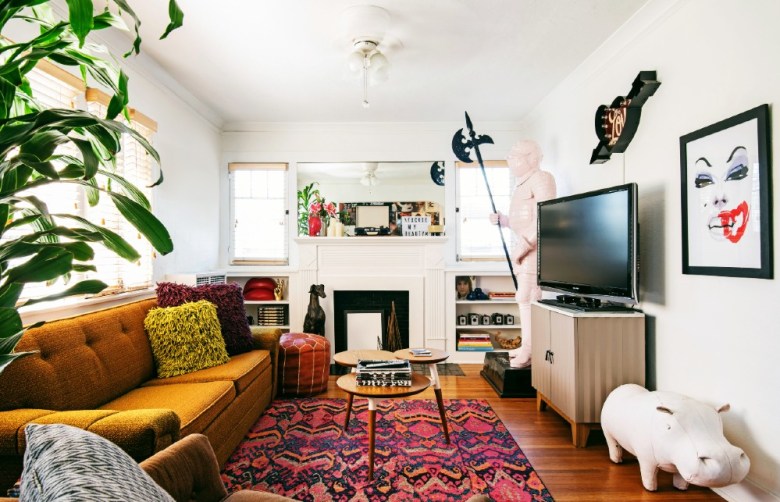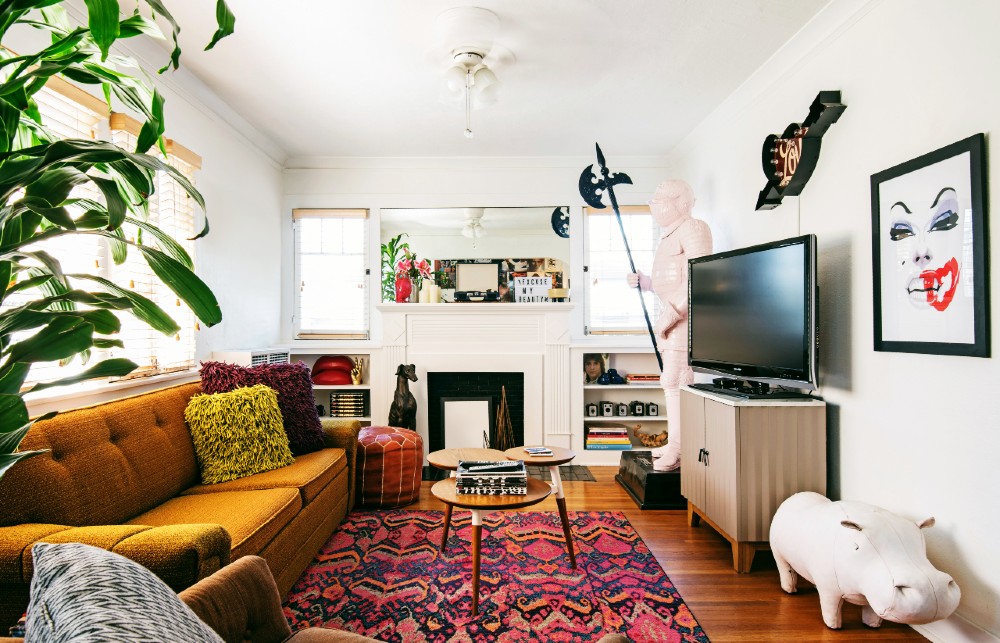 An Airbnb home rental in Southern California. (File photo courtesy of Airbnb)
An Airbnb home rental in Southern California. (File photo courtesy of Airbnb)
A proposed ballot measure to tax vacation homes and short-term rentals to fund San Diego city services already is stirring up debate, even before the issue reaches the City Council.
Supporters claim such an action is long overdue, while detractors argue it would have the unintended consequence of making San Diego less affordable for visitors and residents alike.
Proponents point to the potential of such a ballot measure increasing affordable housing while raising much-needed revenue for the financially strapped city, which wrestled with a $258 million budget deficit going into this year’s budget talks.
Opponents of further taxing vacation homes and short-term rentals are concerned that such a ballot measure could deter tourism.
The Vacation Home Operation Tax, if it makes the ballot and voters pass it, would impose a tax on vacation homes and short-term vacation rentals in the city to fund general services such as public safety, homelessness prevention and maintenance.
The proposal, from Councilmember Sean Elo-Rivera, is set to be considered by the City Council’s Rules Committee at 9 a.m. Oct. 22 at City Hall, 202 C St., on the 10th floor.
This measure, according to Elo-Rivera, who represents the council’s District 9, would not apply to homes lived in by San Diego residents.
“It ensures that those who own a vacation home or a STVR pay their fair share for taking limited housing stock off the rental or for-sale market,” Elo-Rivera said. “There is no cost to renters or homeowners who use their home as their primary residence or rent to long-term tenants.”
Explaining his views on the need for the new tax Elo-Rivera noted: “San Diego needs to work for the people who live here, not just those who vacation here and profit from us. That starts with San Diegans being able to afford housing here. Too many homes in our city sit empty or operate as full-time vacation rentals while families struggle to find a place to live.”
The proposal has one prominent backer already – Barbara Bry, the former mayoral candidate who once served as the councilmember for District 1, which includes La Jolla.
“This measure would tax homes being used as whole-home, year-round short-term vacation rentals and second homes/vacation homes. It is estimated that it would generate roughly $100 million to $135 million annually,” Bry said.
Bry said her rationale for supporting Elo-Rivera’s proposed tax measure comes down to common sense.
“The threat of short-term rentals is that we’re taking housing away from San Diegans,” she said. “I’m supporting this measure because I hope one thing it will accomplish is to bring some of these housing units back into the rental- or owner-occupied market in San Diego, so that residents will have more housing options. The second thing I hope it will accomplish is to provide much-needed revenue to the city.”
Paul V. Becker, owner of Bluewater Vacation Homes, a small-business in Pacific Beach with 25 employees, rents out a variety of coastal vacation properties in Pacific and Mission beaches as well as La Jolla.
He called the proposed new tax misguided. Becker added one of many misconceptions is that short-term rentals are a financial windfall for hosts.
“You can’t come here and buy into the vacation-rental market and make money,” he said. “By the time you pay your property taxes and all your trash, utility and other fees as well as paying for all your wear and tear – you’re not going to make money.”
Becker noted another misconception, that all or most short-term rental hosts are “corporations buying up properties wholesale to ruin neighborhoods.”
He argued that there is an existing city ordinance, authored by District 2 Councilmember Jennifer Campbell and passed in April 2021, which already accomplishes what Elo-Rivera’s proposal is seeking to do.
That ordinance capped whole-home rentals at 1% of the housing stock, limited one license per person and introduced licensing, fees and enforcement designed to decrease the number of short-term rentals.
“The problem (overabundance) was completely overstated,” contended Becker, who added that this proposal “doesn’t make economic sense.” Combined with higher Transient Occupancy Taxes, commonly known as TOT, he said, businesses like his will be “worse off than when we started.”
Cynara Velazquez, who lives in northwest Ocean Beach off Sunset Cliffs Boulevard, disagrees that the short-term rental situation has improved since the city passed Campbell’s ordinance.
“Short-term rentals have just gone crazy in our neighborhood,” she said adding that homes there used to accommodate lower-income housing.
“Apartment complexes are being turned into Airbnb hotels on our block and street,” she said. “This has accelerated since the city passed its ordinance in 2021 and it keeps rising, because they underestimated citywide the overall number of short-term rentals.”
What would Velazquez like to see happen? “Anything that discourages the removal of long-term rental units from the long-term housing market would be welcome,” she answered adding, “This new tax sounds like a good idea. Anything that preserves our natural housing and doesn’t turn it into vacation rentals is a good thing.”
Becker, though, believes further taxation of short-term rentals and vacation homes in San Diego would be not merely impractical but actually harmful.
“It’s a multi-faceted issue,” he concluded, adding the current additional tax proposal, “Is ham-fisted and ill-conceived. The city needs to find other ways to reduce its budget. If the city continues to address its budgetary issues by nickel and diming us to death with all these taxes and fees, it’s going to hurt our local economy badly.”
READ NEXT
